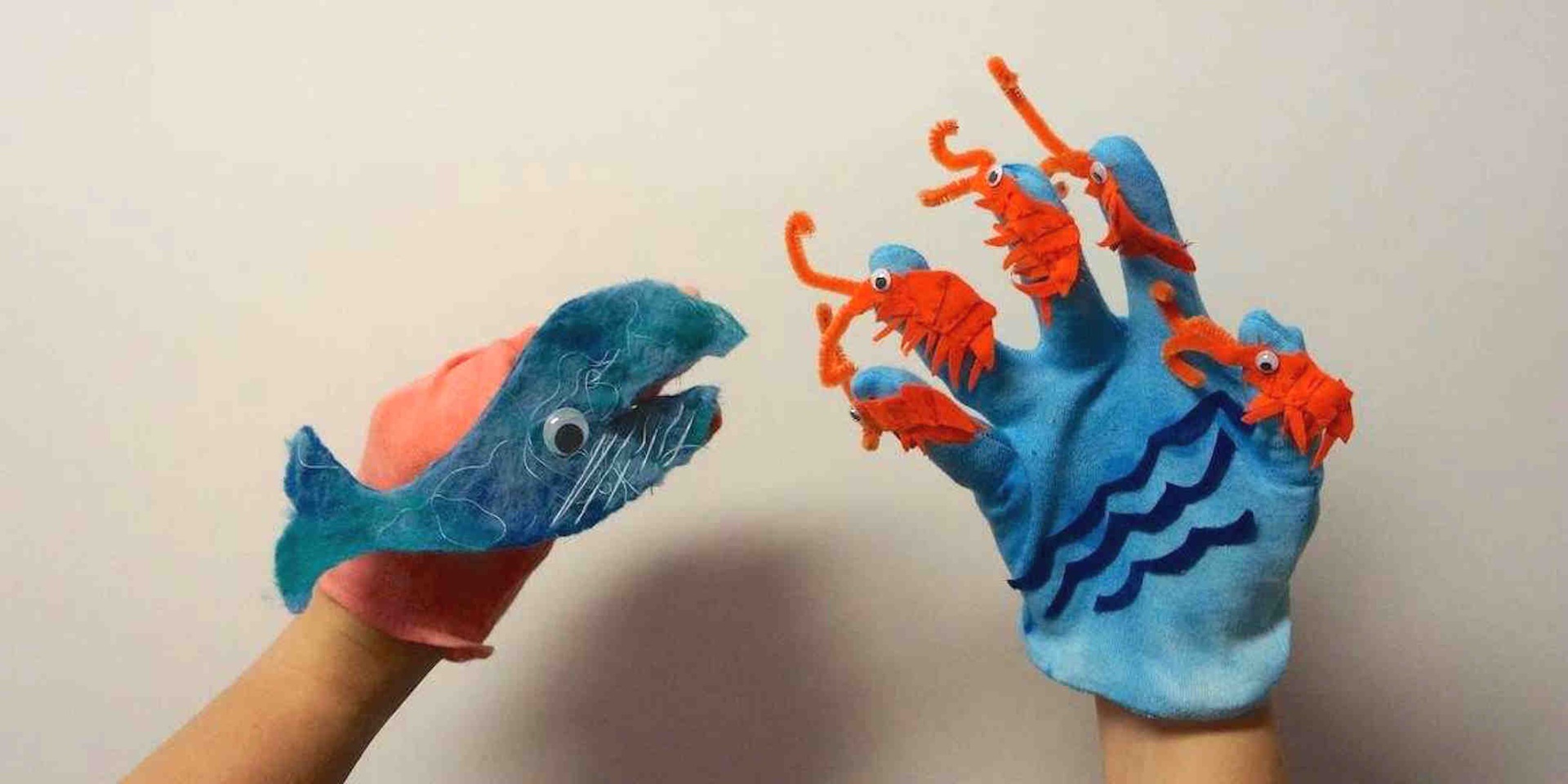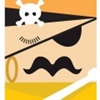
5 little Krill just swimming in a swarm
Along came a hungry whale (gulp, gulp, gulp) and then there were 4……

Finger puppet plays are fantastic for introducing concepts of fantasy and reality, encouraging language development and building simple mathematical skills (associating abstract numbers with concrete concepts) with your early learners. And, well, who doesn’t enjoy a rhyming couplet or two?! While these crafty puppet gloves are excellent fun for facilitated play time we suggest not leaving them unsupervised as some parts like pipe cleaners and google eyes are not so nice if your little one decides to eat them!

Materials:
- A small amount of coloured felt (you can use synthetic felt or make your own using these instructions if you’re feeling a bit more ambitious)
- Sewing needle
- Coloured sewing threads to match your felt- we used white, blue, orange and red
- White cotton gloves (we decided to colour ours blue and orange with food colouring just for fun. You can usually buy cotton gloves from the chemist or supermarkets)
- google eyes (if you are worried about them being eaten you could use fabric circles for eyes or purchase proper safety eyes from a haberdashery store instead)
- Clear craft glue
- Krill and whale pattern print out
- Orange string or pipe cleaners (for the krill antennae)

Step 1
Trace the pattern pieces onto your felt and cut them out. You will need 1 whale and 5 of each krill piece. We made a layered krill body but if you are short on time you can modify the pattern to cut out the body and head all in one piece.


Step 2
Sew or glue together your krill bodies and heads using running stitch. Add the legs last. The legs can be gathered a bit as you are stitching to make them splay out in different directions.

Step 3
Cut your pipe cleaners or string into 5 x 8cm lengths. Fold these in half and curl the ends to create krill antennae.

Step 4
Stitch or glue your antennae on the back of the krill heads.

Step 5
Glue a google eye on each Krill.

Step 6
Stitch each of your krill onto the blue glove (palm side facing up). Attach them at the head as this is the heaviest part. Make sure you place a finger inside each finger of the glove as you stitch so that you don’t stitch the opening shut.


Step 7
Just to add a little something we decided to stitch on a few blue wavy lines onto our blue glove. You might like to add some too, or a pattern of your choosing – spots, triangles, diamonds – whatever takes your fancy.

Step 8
Now for the whale…stitch some white lines across the bottom jaw/throat of your whale to create the appearance of the accordion folds that allow baleen whales to open their mouths so wide to catch their food.

Step 9
Stick a google eye on your whale.


Step 10
Stitch your whale onto the other glove. The jaw of the whale should line up with the thumb and forefinger. Make sure you keep a finger in each of these as you stitch again so you don’t stitch them shut.

And now you have 5 little krill and 1 very hungry whale. 5-4-3-2-1…you’re ready to get those digits dancing as you entertain your little ones with the rhyme. Ready?
5 little Krill just swimming in a swarm
Along came a hungry whale (gulp, gulp, gulp) and then there were 4
4 little Krill still swimming in the sea
Along came a hungry whale (gulp, gulp, gulp) and then there were 3
3 little Krill just swimming in the blue
Along came a hungry whale (gulp, gulp, gulp) and then there were 2
2 little Krill just swimming in the sun
Along came a hungry whale (gulp, gulp, gulp) and then there was 1
1 little Krill still swimming in the sun
Along came a hungry whale (gulp, gulp, gulp) and then there were none.
